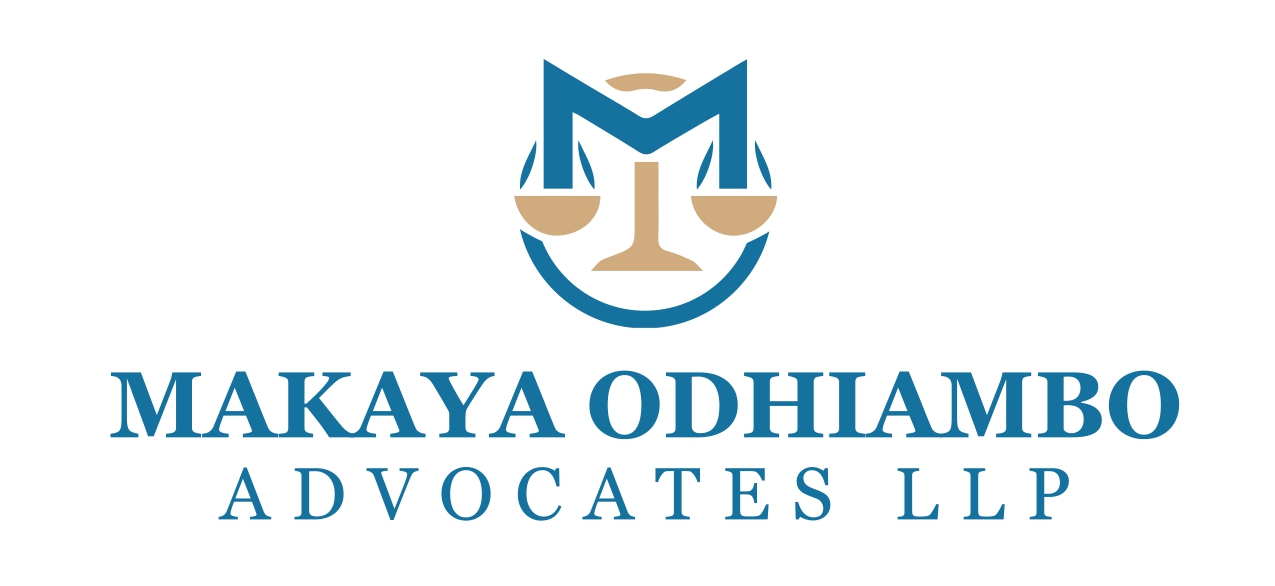I paid a visit to Ubora Dairy Co-operative Society in Mtondia, the only dairy co-operative society in Kilifi with KEBS certification, a partnership with Pwani University to have students learn milk value addition and with the best yoghurt and labania in Kilifi County. Their story…
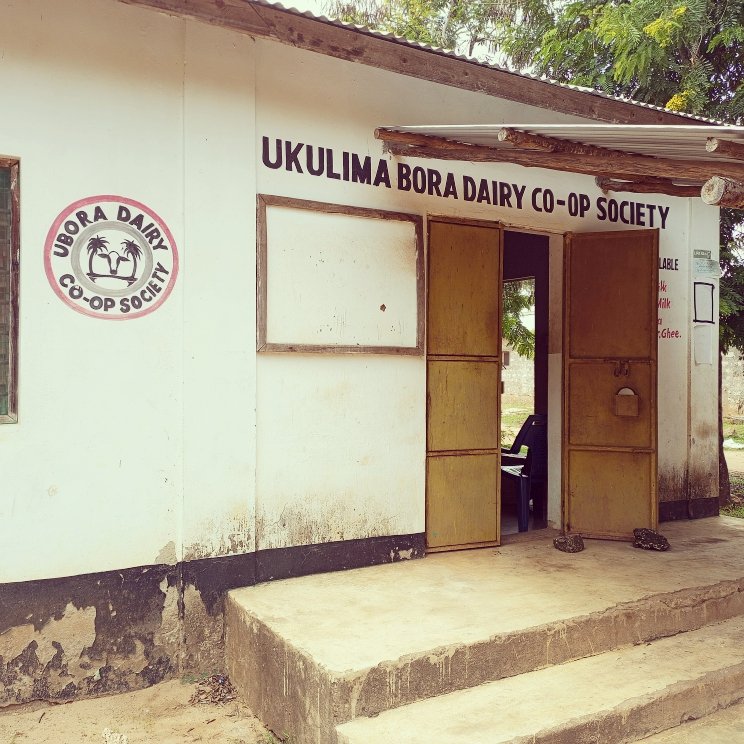
Like in some other parts of the country, the story of dairy farming in Kilifi North has been a painful one. Once dependent on Kilifi Plantation (Kilifi Gold) as their main market, they were left without an organised market once Kilifi Plantation halted sourcing milk from them. Individual dairy farmers in Mtondia then resorted to hawking milk within the area and left with scenarios where one would manage to sell only 2 litres a day from a collected 10 litres and resort to rushing back home to boil the remaining 8 litres before it goes completely bad. Even those who tried taking the milk further to Mombasa individually with no organised umbrella body and sufficient facilities, were not ultimately successful. Sometimes they got responses that the milk went bad, with no clear way of confirming whether it was truly the case.
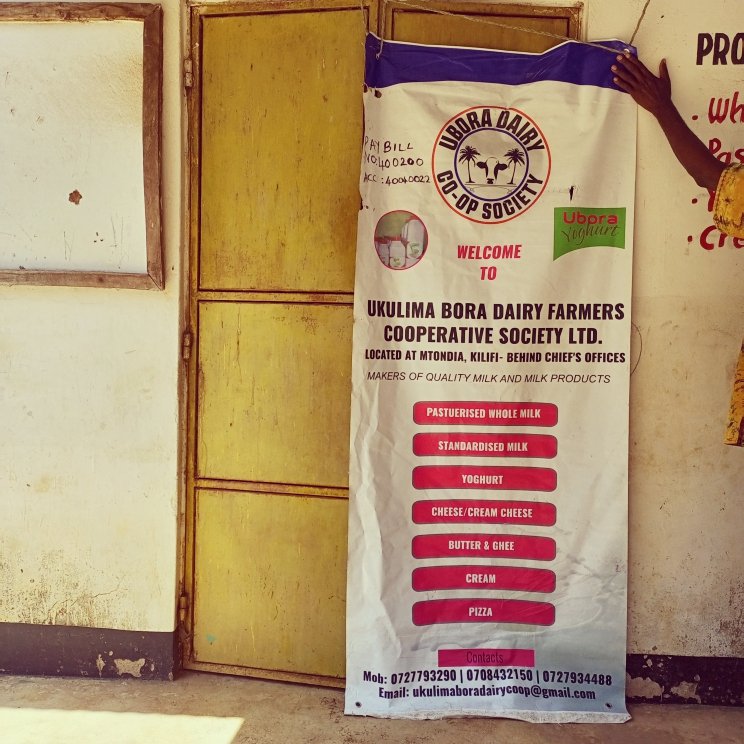
That is when the idea of Ubora Co-operative Society came to be. Faced with the choice of either forming a Limited Liability Company or a Co-oporative Society, the latter was the most convenient enterprise. Initially, 15 or so dairy farmers came together to form the entity. Under the stewardship of Mr. Lawrence Chapa, a career accountant, and his wife, a certified dairy technologist, Ubora had the perfect foundation to get started. Ubora got officially registered in 2012. They are grateful to Mary Mkare, then a Co-oporative Officer, for her help. They also lobbied the then Kilifi Town Council for a chiller, which they provided. The area Chief also duly assisted in getting a location to house their operations. They also received a loan from Kenya Climate Change, Ksh. 1.3 M at 6% interest, lower than the commercial rate.
Ubora now has over 40 dairy farmer delivering milk, they collect over 100 litres daily but target to collect 300 litres daily. Ubora has created employment both directly and indirectly. From those at the premises to bodaboda riders delivering milk and farmhands at the farms. From sourcing milk only around Mtondia, Ubora now sources from Chumani, Tezo, Matsangoni and elsewhere. There have been many successes, but challenges persist. Milk production depends on weather, in dry seasons milk production goes down, farmers depend on rain-fed agriculture. On temperatures, Mrs. Chapa, a dairy technologist, provides a scientific breakdown. “Because of Coast temperatures, milk must leave here at temperatures of at least -4 degrees celsius so as to get to say Mombasa at 6 degrees Celsius. Having a proper cooling system is key. Value addition also reduces microbial load and ensures a higher shelf life for the resulting products”.
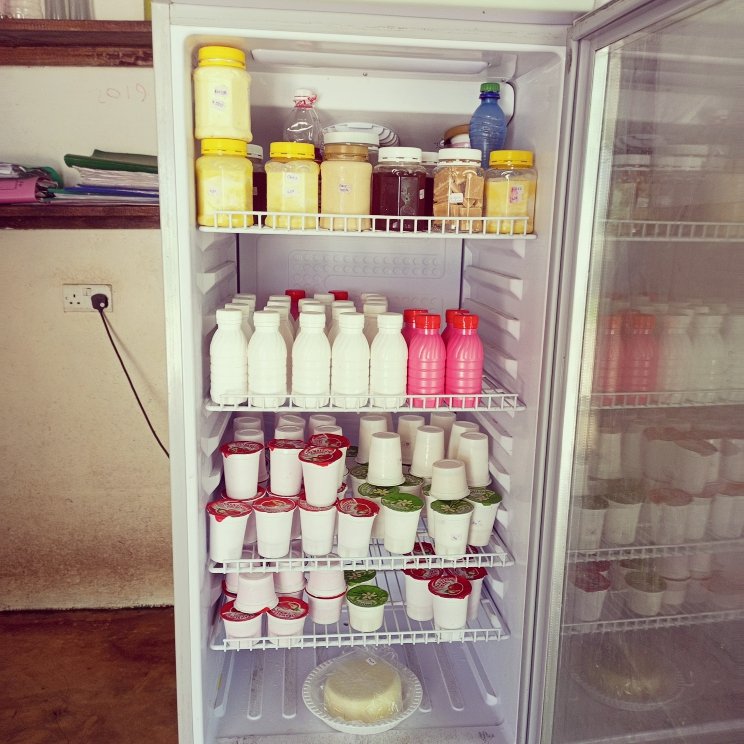
But with more products also comes the challenge of costly KEBS certification. KEBS certifies the first 3 products at a fee, then a separate fee for each additional product. They estimate the complete certification of every product to ultimately cost close to Ksh. 200,000. By no means a simple affair. Regardless, it’s something they know they must do because KEBS-certified and branded products sell more easily. Branding too will be another cost. In addition to acquisition of appropriate appliances need, Mr. Chapa emphasizes the immediate need for short term bridging financing. This is because of the hand-to-mouth economic nature of supplying farmers. They want to be paid immediately their milk is delivered to Ubora.
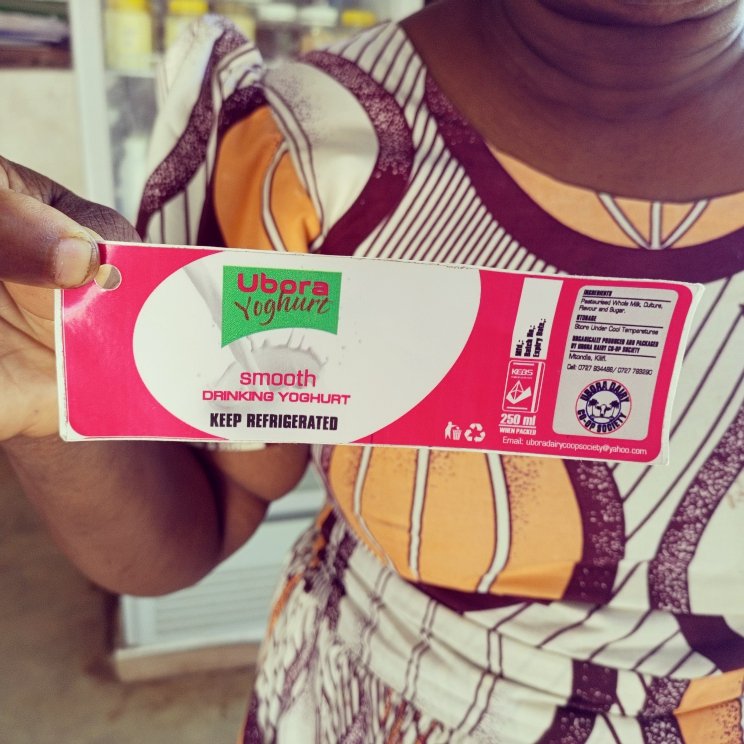
Mr. Chapa would like the Kilifi County Gov’t to focus on milk production. At the moment the County ‘imports’ the majority of its milk from elsewhere. He also feels they should educate dairy farmers to produce their own feeds in the farm and empower farmers to get better breeds. At national level his plea is on reduction of taxation on feeds/raw materials that produce feeds. Mrs. Chapa’s other plea is student scholarships for dairy farming-related courses. She is glad Pwani Uni students no longer need to go to Egerton University to learn yoghurt production. One of the workers at Ubora is a young lady from Baringo. While she has been a great addition, it’s also an indication that youth in Kilifi should embrace the sector more. It is what devolution was meant to be about, exporting expertise but the kind that also trains the locals.
All in all, I had a great time learning about dairy farming at Ubora Co-operative Society. An entity that epitomizes the Kenyan spirit of sheer resilience against great odds. They have an array of great products, including cheese, 1 Kg at Ksh. 1,200. Please support them.
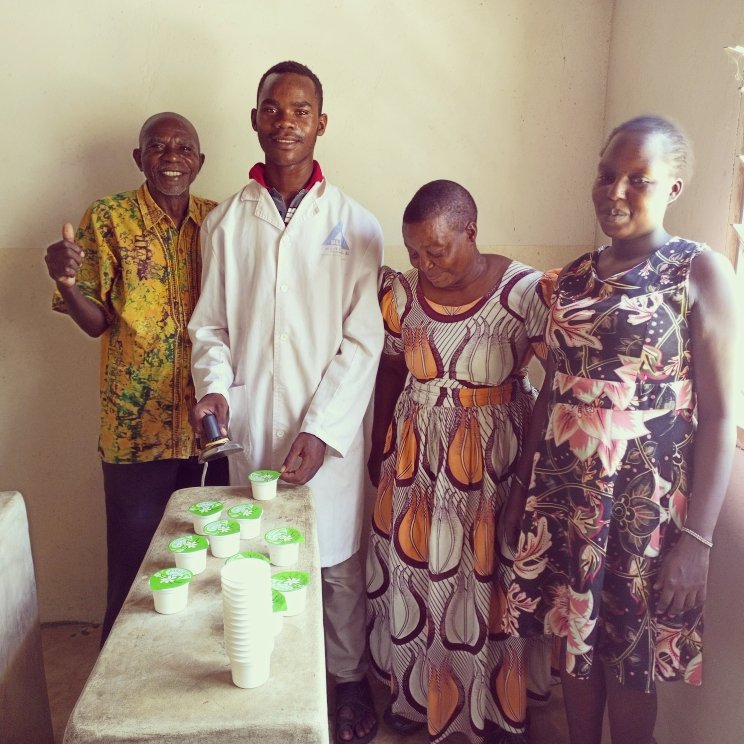
SUPPORT: We are a non-funded entity kept alive solely by our readers’ thirst for the undocumented and not adequately documented aspects of our past. The logistics of getting these stories can sometimes be a challenge. We would appreciate your support. To support Pwani Tribune’s history and culture research plus content creation…M-PESA till number: 8627478 Contact: +254726860693

